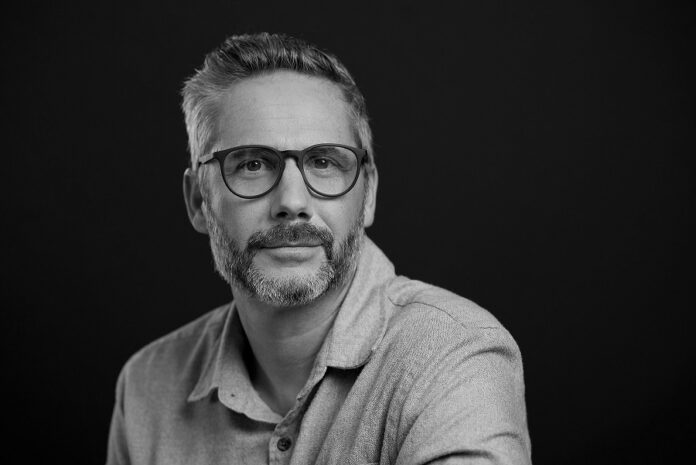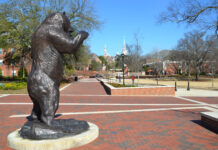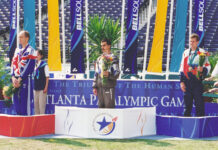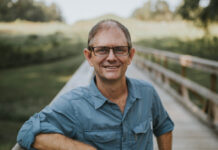Mercer University nursing student Kevin Hazzard, an Atlanta-based author and journalist, has been honored with a Christopher Award for his nonfiction book, American Sirens: The Incredible Story of the Black Men Who Became America’s First Paramedics.
The Christopher Awards, which were bestowed on 12 books in March by The Christophers nonprofit, celebrate authors, illustrators, writers, producers and directors whose work “affirms the highest values of the human spirit,” according to a news release.
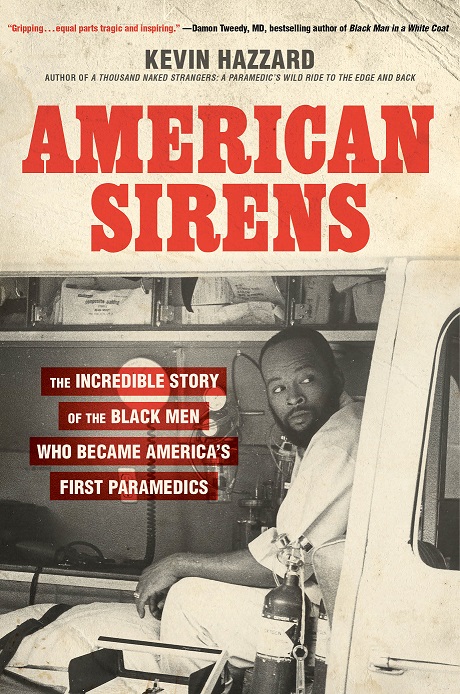
Hazzard’s award-winning book tells how a group of young, undereducated Black men became some of the world’s first paramedics.
“It was an unbelievable story,” Hazzard said. “It’s the birth of paramedics, and yet nobody knows where it came from. The people, the story and the setting were all incredibly exciting. Having been a paramedic myself, I found it remarkable that most people who work in the field hadn’t even heard the story, and it just felt like it’s a story that needed to be told.”
Journalism and medicine are intertwined in Hazzard’s life. After graduating from The Citadel in 1999, he began work at a magazine in Greenville, South Carolina. He later moved to Atlanta and got a newspaper job. He also went to EMT and paramedic school, which allowed him to work as a paramedic at Grady Memorial Hospital in Atlanta.
“There’s been medicine and journalism my entire professional life,” Hazzard said. “It’s a very personal form of medicine. It’s a lot of fun to be in your 20s and racing through the state in an ambulance, going to heart attacks, seizures and other accidents. It’s madness and mayhem in every sense, and it was a ton of fun.”
American Sirens: The Incredible Story of the Black Men Who Became America’s First Paramedics follows Dr. Peter Safar, the physician who invented paramedicine and was later nominated for the Nobel Prize.
As recently as the 1960s, volunteer firefighters, police officers or undertakers from the local morgue would respond to medical emergencies.
“Here in Atlanta, the undertakers had less training than lifeguards at a public pool,” Hazzard said. “They had absolutely no equipment, and they could really only offer rides to hospitals. This poor level of care led to what was called an epidemic of preventable deaths. We needed something to bridge the gap to get sick people the care or transportation they needed.”
In 1968, Dr. Safar began running the paramedic program at Freedom House to provide opportunities for young Black people living in Pittsburgh’s Hill District, a predominantly Black and low-income area. Through this partnership, 24 Black men became the world’s first paramedics at the height of the Civil Rights Movement.
“These young men were plucked from a neighborhood that the rest of Pittsburgh and America thought very little of and stepped up at a time of great need,” Hazzard said. “They showed that they were just as capable as anyone else of doing incredible things.”
He said he felt honored to receive a Christopher Award.
“The last several years, there’s been so much negativity swirling around us,” he said. “And yet, here’s the story of people who rose above that to save the lives of complete strangers at their own peril. Being told that story celebrates humanity tells me that I told the story as it was meant to be told.”
Hazzard’s first book, A Thousand Naked Strangers: A Paramedic’s Wild Ride to the Edge and Back, was published in 2016. It details the various stories Hazzard accumulated while working as a paramedic.
“It started out as a blog, and I was writing to sort of entertain my friends and people who would ask for crazy stories,” he said. “Eventually, I got tired of telling the same stories, so I started writing them down.”
In addition to his journalistic work, Hazzard has contributed to various TV shows. He worked on Code Black for CBS and wrote for shows for Universal, ABC Studios and Hulu. He is currently working on a TV show that will premiere on FX.
Hazzard is currently pursuing a Bachelor of Science in Nursing at Mercer’s College of Nursing in Atlanta. He decided to earn a nursing degree after he started working with an international relief organization, Global Response Medicine. He found the work exciting, fulfilling and different from anything he thought he’d be doing.
He hopes to continue working on different TV projects, writing books and see where nursing takes him.

